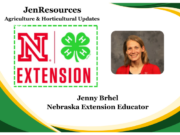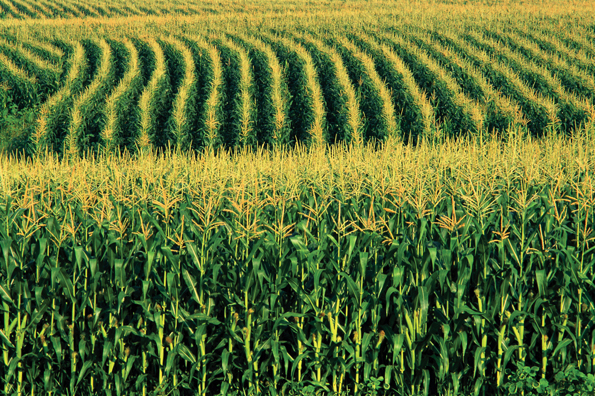Coming Events
- Nov. 15 – York County Corn Grower Banquet, 6:30 p.m., Chances R, York
- Nov. 15 – Landlord/Tenant Workshop, 11 a.m. – 3 p.m., Fairgrounds, Hastings, Call 308-461-7209 to register
- Nov. 15 – Landlord/Tenant Workshop, 5:30 – 9 p.m., Extension Office/College Park, Grand Island, Call 308-385-5088 to register
- Nov. 26 – Extension Board Meeting, 7:00 p.m., Extension Office, York
York County Corn Grower Banquet Planned
Have you reserved your York County Corn Grower Banquet ticket yet? If not, contact our office by noon Tuesday, Nov. 13, if you would like a ticket! The banquet will be held at 6:30 p.m. at Chances R here in York. I know we’ll have a great meal as well as a great LEAD presentation by Jason Perdue. Give me a call at 402-362-5508 or email me at gary.zoubek@unl.edu to reserve your tickets!
Cropping Update
We’ve sure had some variable weather over the weekend! It was really warm on Saturday with lots of wind and changed dramatically Saturday evening in a matter of minutes on the way back to York from Lincoln. Still lots of wind, but also lots of cold on Sunday! The rain we received was sure welcome; the York area received about 1.22†which is great! Our historic average for November is 1.21†so finally we’ve had a month average or better precipitation. The last month that we had that was in April.
Last Friday, I went out to an area rainfed corn field to install some Watermark Sensors at one to four foot depth so that I could monitor our recharge to the profile. It was extremely dry (an understatement), and I had a difficult time trying to get them installed! Using a regular probe I could get down about 6 inches, so I ended up borrowing an auger type probe and after considerable time I ended up only getting the 1 and 2 foot sensors installed. The soil would not want to come out with the auger; it sifted down through the auger like sand. So, I’m sure that this rainfall event did not reach that one foot depth yet, so I will continue to monitor the sensors as the winter and spring progresses! Hopefully we’ll be able to install the 3 and 4 foot sensors eventually.
This past week, I’ve continued to visit with both producers and crop consultants about the soil test results they’ve collected this past fall and they report really variable results for nitrate carryover from field to field.  As a result, it’s really important to collect good surface and subsurface soil samples, have them analyzed and interpreted correctly to plan the coming year’s nutrient program. If you are not using UNL latest recommendations, I challenge you to do some on-farm research and compare both the yield as well as the economics of the two programs.
What you need to make an accurate recommendation is your yield goal; we suggest taking your last five years yields and adjusting them up by 5 or possibly 10%.   You also need a soil test that provides residual nitrates in the top 24†depth or more, your 8†organic matter, your previous crop, and if possible, your irrigation water test for nitrogen.
Each 1% of organic matter is a reduction of about 30 pounds of nitrogen, so each 3 ppm in your soil test nitrate level is a reduction of about 12 pounds nitrogen. At UNL, we credit 45 pounds of nitrogen following soybeans, and I’m guessing we’re conservative with that figure. Finally, if your water has 10 ppm nitrate-N and you pump 10 inches, that’s a credit of 22 pounds of nitrogen. You add up all the credits to get your fertilizer recommendations or needs.
If you would like to check out UNL’s recommendations for yourself, go to the following website: http://cropwatch.unl.edu/web/soils/home.
Give me a call at 402-362-5508 or email me at gary.zoubek@unl.edu if you’d be willing to conduct one of these trials or if you’d like me to run off some recommendations for you!
If you have grain stored on farm, now with the change of temperatures, it’s important to monitor and aerate the grain properly. Tom Dorn, Extension Educator from Lincoln that works in this area has just posted an update on this topic on CropWatch, so check it out at: http://cropwatch.unl.edu/.
Lawn and Garden Update
We finally received some additional rainfall which is very much welcome. Our perennial turf, shrubs as well as trees can use the additional moisture going into the winter prior to the soils freezing up. Hopefully we’ll get a little more.
I wanted to mention that our office will again be offering Master Gardener Training Sessions that will also be open the public and interested gardeners.
Topics will include:
February 12 – Native/Adapted Plants — Trees, Shrubs and Herbaceous Perennials – Presented by Steve Rodie UNL Assoc. Professor & Kim Todd UNL Assoc. Professor and Extension Landscape Specialist
February 19- Drought Recovery & Water-wise Practices in Lawns and Trees – Presented by John Fech, UNL Douglas County Extension Educator & Laurie Stepanek, Nebraska Forest Service
February 26 – Soils and Soil Management – Soil properties and their characteristics greatly influence the success of plant growth and vigor in the landscape. Participants will learn about the characteristics of soil properties, textures, water retention, and nutrient binding to better understand how to prepare and amend soil for optimum plant material growth – Presented by Brad Jakubowski, Environmental and Earth Sciences adjunct faculty, Doane College
March 5 – Lawn Diseases and Insect Management – Presented by Amy Timmerman, Holt County UNL Extension Educator & Jim Kalisch, UNL Extension Educator, Entomology
March 12 – Container Gardening & Nebraska Extension Master Gardener Orientation – Presented by Terri James, Extension Assist. UNL Dept. of Agronomy & Horticulture
March 19 – Household Insects & Bedbugs – Presented by Barb Ogg, Lancaster County UNL Extension Educator
So if you’re interested in any of these topics, or want to become a Master Gardener, mark your calendar for that evening and watch for more details/times in future columns. I believe this is a great set of programs.  If you’ve thought about becoming a Master Gardener, information is posted at this site: http://york.unl.edu/water-environment. The registration for the six workshops will also be posted at this site in a week or two!

































